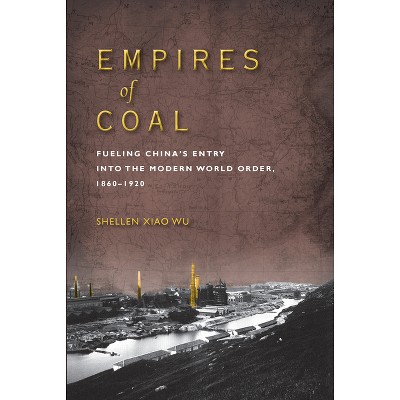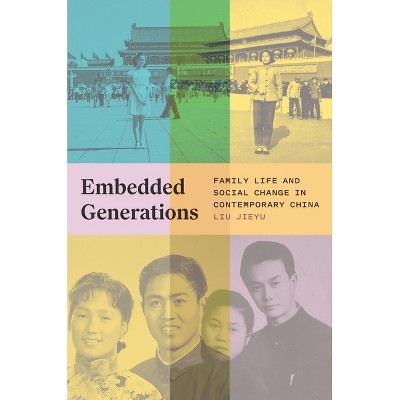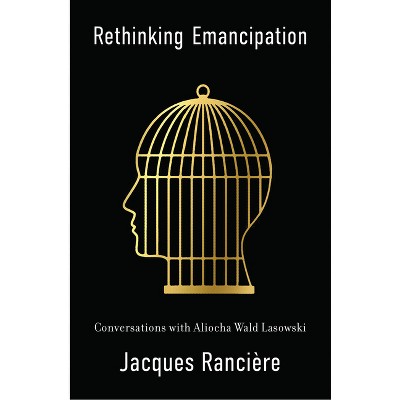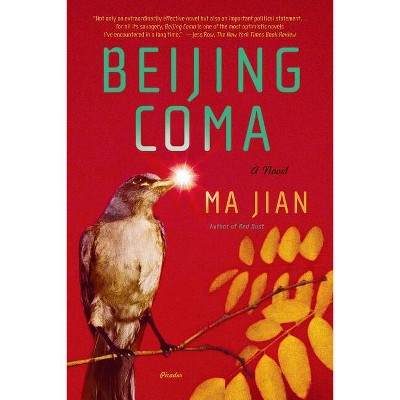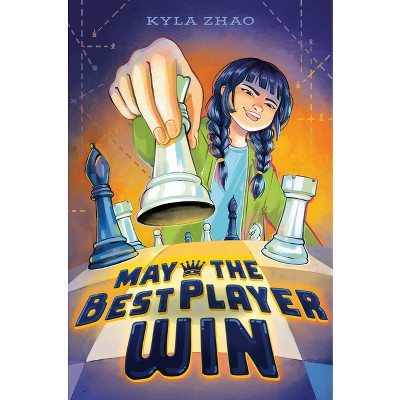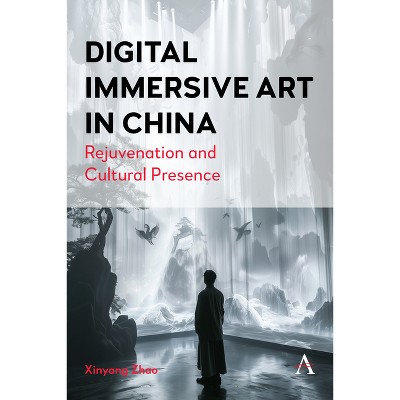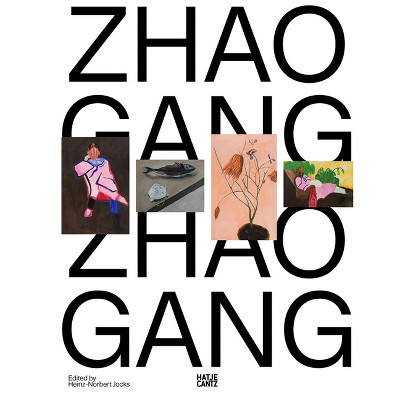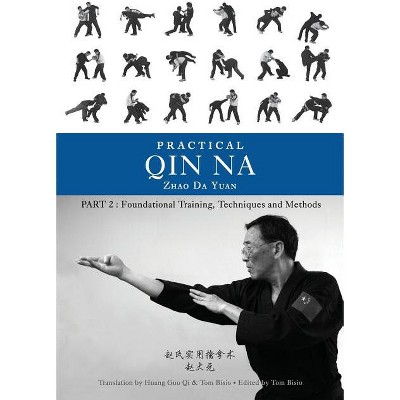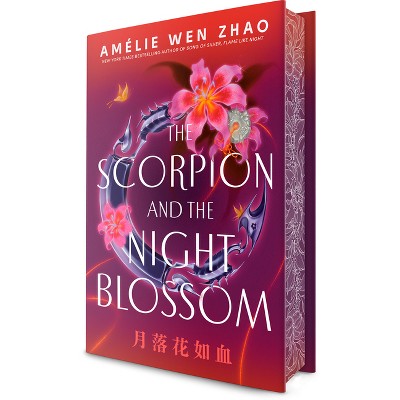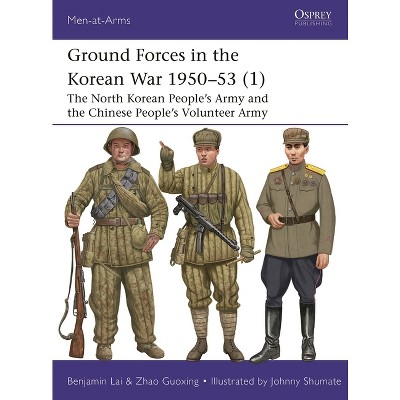Sponsored

The Dragon Roars Back - by Suisheng Zhao (Paperback)
In Stock
Sponsored
About this item
Highlights
- Selected among Foreign Affairs's "Best of Books 2024" China is unique in modern world history.
- About the Author: Suisheng Zhao is Professor and Director of the Center for China-US Cooperation at Josef Korbel School of International Studies, University of Denver.
- 358 Pages
- Political Science, World
Description
About the Book
"In modern world history, no other rising power has ever experienced China's turbulent history in relations with its neighbors and Western countries, been of its current scale and led by a political leader with Xi Jinping's power and sense of mission to restore what he believes China's natural position as a great power. When China was weak, it was subordinated to others. Now China is strong, it wants others to subordinate to China at least on the issues involving what it regards as core national interests. What are the primary forces and how these forces have driven China's reemergence to global power? Weaving together complex events, processes, players to provide a historically in-depth, conceptually comprehensive, and up-to-date analysis of Chinese foreign policy transition since the founding of the People's Republic of China (PRC), this book argues that transformational leaders with new visions and political wisdom to make their visions prevail are the game-changers. Mao Zedong, Deng Xiaoping, and Xi Jinping are transformational leaders who have charted unique courses of Chinese foreign policy in the quest for security, prosperity, and power. Mao Zedong led revolutionary diplomacy to keep the wolves off the door; Deng Xiaoping's developmental diplomacy created a favorable international environment for economic prosperity; Xi Jinping has launched big power diplomacy to return China to the global centrality it occupied through most of human history. With the ultimate decision-making authority on national security and strategic policies, these leaders have made political use of ideational forces, tailoring bureaucratic institutions, exploiting the international power distribution, and responding strategically to the international norms and rules to advance their foreign policy agendas in the path of China's ascendance"--Book Synopsis
Selected among Foreign Affairs's "Best of Books 2024"
China is unique in modern world history. No other rising power has experienced China's turbulent history in its relations with neighbors and Western countries. Its sheer size dominates the region. With leader Xi Jinping's political authority unmatched, Xi's sense of mission to restore what he believes is China's natural position as a great power drives the current course of the nation's foreign policy. When China was weak, it was subordinated to others. Now, China is strong, and it wants others to subordinate, at least on the issues involving what it regards as core national interests.
What are the primary forces and how have these forces driven China's reemergence to global power? This book weaves together complex events, processes, and players to provide a historically in-depth, conceptually comprehensive, and up-to-date analysis of Chinese foreign policy transition since the founding of the People's Republic of China (PRC), arguing that transformational leaders with new visions and political wisdom to make their visions prevail are the game changers. Mao Zedong, Deng Xiaoping, and Xi Jinping are transformational leaders who have charted unique courses of Chinese foreign policy in the quest for security, prosperity, and power. With the ultimate decision-making authority on national security and strategic policies, these leaders have made political use of ideational forces, tailoring bureaucratic institutions, exploiting the international power distribution, and responding strategically to the international norms and rules to advance their foreign policy agendas in the path of China's ascendance.
Review Quotes
"Suisheng Zhao has written a superb account of how Mao Zedong, Deng Xiaoping, and Xi Jinping each conceived and executed radically different eras of Chinese foreign policy. As such, this book deserves a wide reading by experts and interested lay persons, and ought to be on the syllabi of Chinese foreign policy courses and broader IR classes that seek to move beyond a realist, hard power, Thucydides Trap paradigm."--David M. Lampton, China Journal
"[The Dragon Roars Back] is a compelling read; its rich comparative analysis, historical depth, and engaging writing make it a valuable resource for a wide audience interested in deconstructing the complexities of the People's Republic of China (PRC) since its founding in 1949."--Mandira Bagwandeen, South African Journal of International Affairs
"Zhao has written the most important book on Chinese foreign policy in more than a decade, unparalleled in terms of its broad scope, sophistication, and clarity of vision. Moreover, the author marshals a vast amount of primary and secondary materials to produce a remarkably lucid and compelling narrative of elite politics and foreign policy-making."--Andrew Scobell, Political Science Quarterly
"Zhao presents a robust and empirically rich rebuttal of the realist theory that China's foreign policy is the straightforward product of its geostrategic position and the broader balance of power."--Andrew J. Nathan, Foreign Affairs
"By offering a fresh perspective on Chinese foreign policy, Zhao's framework moves beyond the overemphasis on structural factors in realism, the attribution of behaviour solely to authoritarianism in the regime-type theory, and the focus on bureaucratic politics in institutionalism."--Chi Zhang, The China Quarterly
"Zhao's overview of Chinese foreign policy serves as a useful introduction to that history for readers otherwise unacquainted with it. Recommended."--P. Lorge, CHOICE
"The Dragon Roars Back is a masterful exploration into the inner dynamics that have driven China's international interactions since 1949. Suisheng Zhao places China's leaders at the center of his analysis--and perceptively reveals the ideational, cultural, bureaucratic, and contextual factors shaping each leaders' policy preferences. A pathbreaking study."--David Shambaugh, the George Washington University, and author of China's Leaders
"China's foreign policy over the seventy-plus years of the People's Republic has gone through transformations so remarkable that structural theories cannot explain them. In this deeply informed yet readable study, Suisheng Zhao shows that the twists and turns in China's relationship to the world were imposed by the powerful visions of three transformational leaders - Mao Zedong, Deng Xiaoping, and Xi Jinping. Understanding how these leaders saw the world and how they tried to change it is essential if we are to understand where Xi Jinping intends to lead China."--Andrew J. Nathan, Columbia University
"Suisheng Zhao has made an enormous contribution to the literature on Chinese foreign policy. China is indeed roaring back, and the issue of how the West responds will shape the policy landscape for decades to come. We need to understand China's policy history far better than we do, and Zhao's scholarship puts all who read this on a far better course to do so."--Christopher R. Hill, Former Assistant Secretary of State for East Asia/Pacific Affairs, U.S. Department of State
"Suisheng Zhao has written the authoritative account of how Mao Zedong, Deng Xiaoping, and Xi Jinping each conceived and executed three radically different eras of Chinese foreign policy. The Dragon Roars Back shows exactly how Xi is problematic for America and the West, in his harboring grievances, holding grandiose visions for the future, and negligence of the dangers his quest entails."--David M. Lampton, Johns Hopkins--SAIS
About the Author
Suisheng Zhao is Professor and Director of the Center for China-US Cooperation at Josef Korbel School of International Studies, University of Denver.